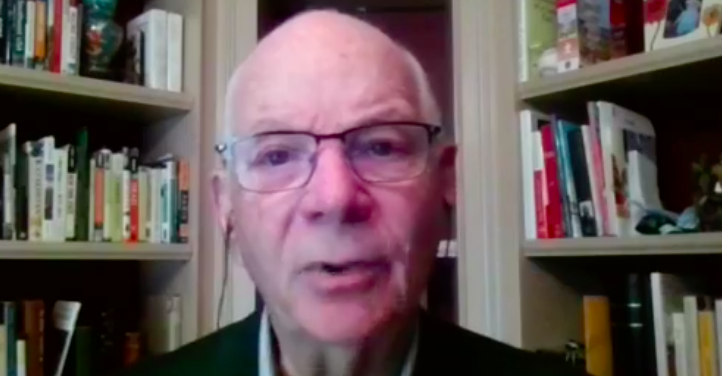In the midst of a pandemic, small business aid is taking August off to refresh.
In March, the federal government included hundreds of billions of dollars in new funding for programs in the CARES Act to get money into the hands of small businesses quickly in the midst of a pandemic and economic downturn. Five months later, the U.S. Small Business Administration’s Paycheck Protection Program (PPP) still has funds and the Economic Injury Disaster Loan (EIDL) needs a reup. And the programs aren’t accepting applications, as Congress is on an August recess and negotiations about a new COVID response bill are still ongoing.
In U.S. Sen. Ben Cardin’s view, the best way to help small businesses is to get the virus under control. But with vaccines still in the trial phase, the Maryland Democrat said a new round of aid is needed from Congress — and it should’ve been passed “before now.”
This time, they’re thinking smaller.
“We’re working together again, bipartisan, for a second round, but in that second round we want to target the funds. We no longer have to get the money out quickly as we did in March. We want to now target it to those small businesses that really need it,” said Cardin, who is the ranking member on the Senate’s small business committee, at a virtual forum organized Friday by the Johns Hopkins Office of Economic Development’s HopkinsLocal initiative. “So the way we want to do that is to target it to the smaller of the small businesses, and those that have significant revenue losses. We recognize that they are still in desperate need of help.”
While Cardin called PPP and EIDL programs a “success” in their mission of getting funds out quickly, he said there’s also a need for improvements when the programs reopen.
In particular, “we have to target relief to the minority community,” he said — a particular issue for Maryland, where there’s a high concentration of minority-owned businesses, as well as majority-Black Baltimore. They tend to be smaller businesses or sole proprietorships, and they have less formal banking relationships. We’ve heard experiences that PPP loans weren’t reaching business owners of color, and now there’s data to confirm that there were disparities.
“We find with the data,” Cardin said, “that the loans going to minority businesses were not as large as those that went to their counterparts that had more sophisticated relationships with the banking community.”
So with a program like PPP, where forgivable loans are administered by banks, there needs to be particular outreach. When Congress replenished PPP, Cardin said setting aside a specific amount of $60 billion for minority-owned businesses and providing funds to “mission lenders” like community development financial institutions helped address those issues.
Another big issue was how the law was carried out by the executive branch: Cardin said the SBA didn’t execute on a mandate to reach minority and underbanked business owners that was in the CARES Act.
The EIDL also wasn’t administered in the way that Congress envisioned. While Cardin said the program was successful in getting money out, he cited these key differences between the law and practice:
- Loans were supposed to be capped at $2 million, but SBA capped them at $150,000
- Advance grants to companies were supposed to be $10,000, but on average they were only $4,000 to 5,000
- Loans were supposed to be processed in three days, but it also took longer.
Despite the issues, Cardin said he wants to stick with this program as a source of loans for small businesses, since the SBA is likely better positioned than banks to make the relatively smaller loans that the program requires. But he allowed that working in a bipartisan way means he won’t get everything that he wants. U.S. Sen. Marco Rubio, the Florida Republican who chairs the small business committee, has proposed another program that would be run through banks. Plus, Cardin said he would make the EIDL forgivable if he could. Currently, it must be paid back, though no payments are due during the pandemic.
As for timing on a next package, the action will be in the period after Labor Day through early October. That’s when Congress will return from its August recess for five weeks before another recess that’s timed ahead of November’s election. The small business aid isn’t what is holding negotiations up, Cardin said, but the Democrats and Republicans remain “far apart” on other issues like unemployment insurance and aid for state and local governments.







